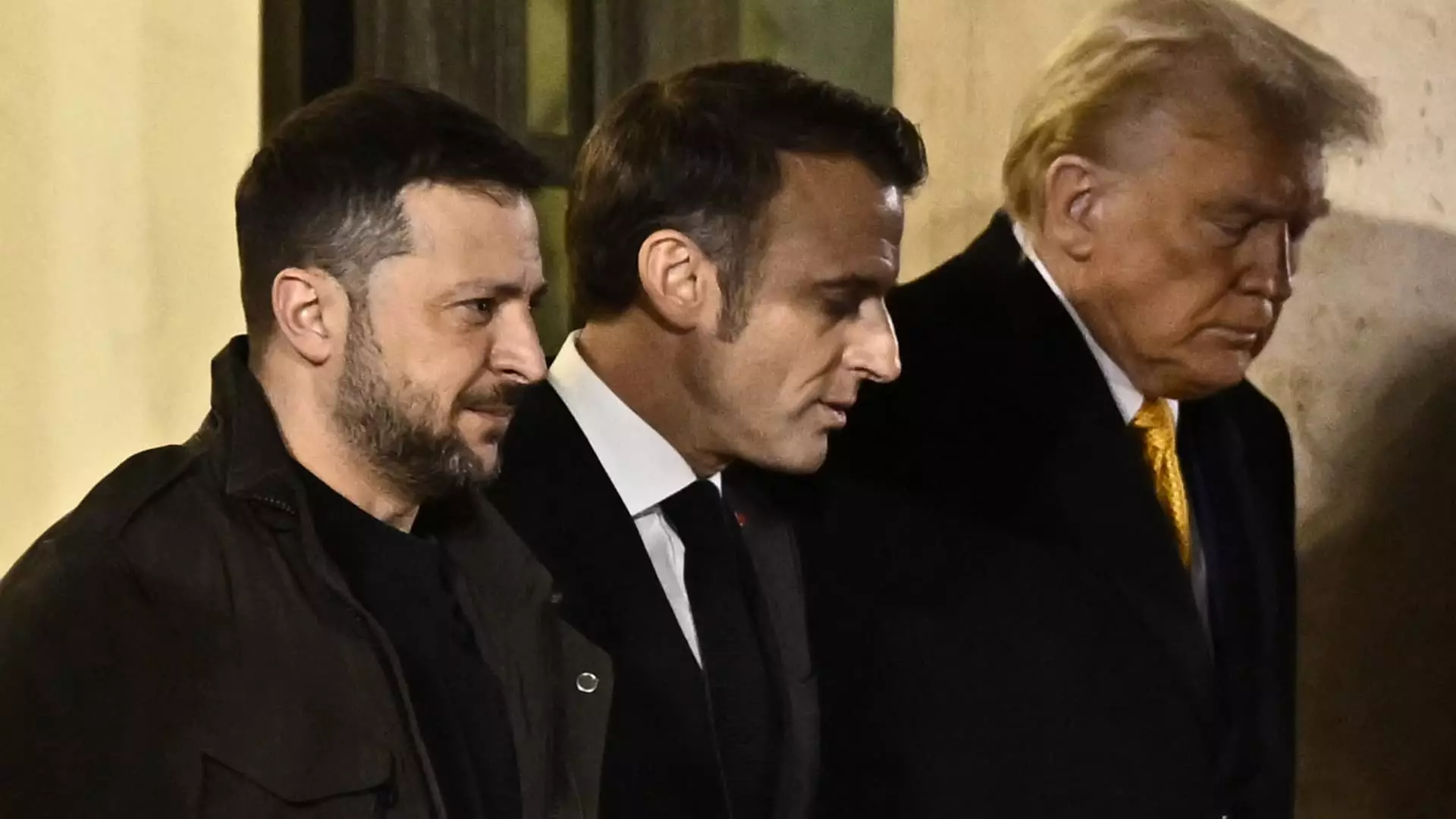The geopolitical landscape surrounding the Russia-Ukraine war has been marked by complex diplomatic maneuvers, especially as Europe seeks to secure its position in pivotal peace negotiations. Recent events have underscored the urgency and anxiety among European leaders as they grapple with the prospect of being sidelined while major negotiations unfold. The significance of this delicate situation cannot be overstated, as it not only affects the future of Ukraine but also speaks volumes about Europe’s role in global diplomacy.
As fears mount that Europe might be absent from high-stakes negotiations, French President Emmanuel Macron hastily convened an emergency summit in Paris. This meeting, characterized by urgency and tension, was prompted by disconcerting developments from the Munich Security Conference. European leaders, including Germany’s Chancellor Olaf Scholz and Poland’s Prime Minister Donald Tusk, congregated to discuss strategic approaches in the face of a shifting diplomatic landscape. The summit reflects a crucial moment for Europe to assert its influence, especially given the ongoing talks expected to kick off in Saudi Arabia involving U.S. Secretary of State Marco Rubio and Russia’s Foreign Minister Sergei Lavrov.
The need for Europe to have a voice in the peace talks is underscored by Ukrainian President Volodymyr Zelenskyy’s declarations. His path to Riyadh highlights Ukraine’s aware stance that discussions about its future cannot occur without its involvement. Zelenskyy’s assertion, that Ukraine did not consent to the negotiations being held without its presence, emphasizes the necessity of including Ukrainian perspectives in any strategic discussions aimed at resolving the conflict.
The United States has emerged as a pivotal player in the peace proceedings, with its involvement raising questions about the adequacy of European representation in these negotiations. U.S. officials have openly indicated that a superfluous gathering of countries may hinder progress, and instead, they have solicited European allies to provide details on military capabilities they could mobilize for potential security guarantees in Ukraine. The perception that the U.S. might dominate the dialogue intersects with Europe’s longstanding quest for a united front in addressing security challenges posed by Russia.
Nevertheless, U.S. President Donald Trump’s administration appears to embrace a strategy that may exclude European leaders from the negotiating table. This trend has fostered a sense of urgency within European capitals to reassert their relevance, particularly given the historical ties between Europe and Ukraine, and their mutual interest in a lasting peace. The vision of an inclusive negotiation process—one that accurately reflects the concerns of all affected parties—is deeply rooted in the European perspective.
Amid the uncertainties regarding peace negotiations, European leaders have echoed the sentiment of unity and cooperation. EU Foreign Policy Chief Kaja Kallas passionately asserted that any sustainable peace agreement must incorporate the perspectives of both Ukrainians and Europeans. Her argument emphasizes that peace processes must not merely be top-down affairs driven by superpowers but should instead encapsulate the voices of those living with the consequences of conflict. This similar call for European unity was echoed by European Commission President Ursula von der Leyen, who warned that neglecting Europe’s role could weaken the entire transatlantic alliance.
The issue of defense spending has resurfaced as a critical point of contention. U.K. Prime Minister Keir Starmer’s comments regarding potential British military involvement underscore growing concerns about reliance on the U.S. military assurances. He advocates for increased investment in European defense capabilities, aligning with Trump’s longstanding critique of NATO members’ defense expenditures. This has galvanized discussion among European leaders about how to bolster security independently of U.S. support and to ensure Europe can stand firmly in its commitments.
As the Europe-Russia-Ukraine conflict evolves, the ongoing negotiations serve as a litmus test for Europe’s diplomatic and military resolve. The delicacy of these talks reveals the intricacies of international relations, as European leaders navigate the balance between American influence and their national interests. The outcome of these negotiations will not only decide the fate of Ukraine but also redefine Europe’s geopolitical posture in an era marked by rising tensions. It is clear that the unity and collaboration demonstrated in Paris will be essential for Europe to maintain its relevance in the unfolding narrative of peace in Ukraine. Without a concerted effort to integrate European voices into the negotiations, the aspirations for a stable and peaceful resolution may remain unfulfilled.

